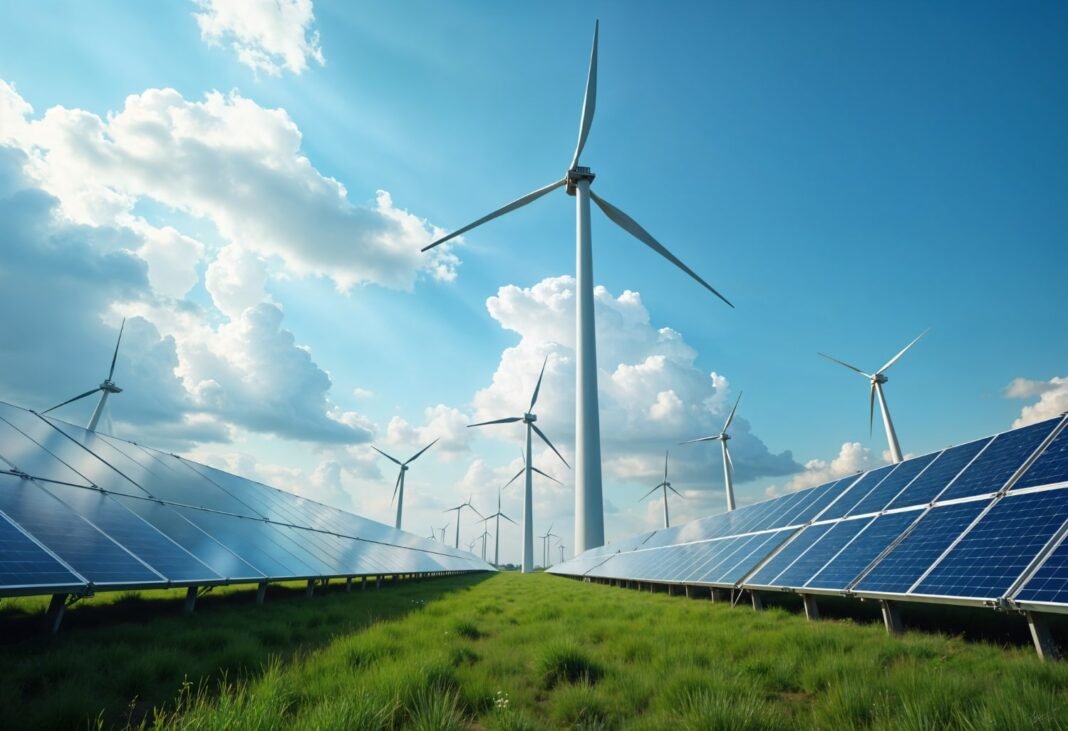As Earth Day 2025 approaches, the global community is coming together under the theme “Our Power, Our Planet,” which emphasizes the urgent need to triple renewable energy production by 2030.
This initiative highlights the vital importance of Renewable Energy for Earth in combating climate change and fostering sustainable development.
Community Centric Energy Solutions
At the forefront of this initiative is the University of Victoria’s Accelerating Community Energy Transformation (ACET).
ACET collaborates with over 40 organizations, including Indigenous communities, to jointly create equitable and resilient clean energy solutions.
By focusing on local, community-driven partnerships, ACET aims to strengthen local autonomy and create new economic opportunities through diverse energy systems.
Curran Crawford, the founding executive director of ACET, emphasizes the importance of designing and implementing sustainable energy systems.
His work is pivotal in transforming Canada’s clean energy landscape, particularly through projects that prioritize community engagement and resilience.
Integrating Technology with Community Involvement: Renewable Energy for Earth
ACET adopts an interdisciplinary approach that combines technological innovation with social science research.
Zachary Gould
Zachary Gould, an expert in community energy systems and architectural engineering, explores the integration of district energy networks and energy systems modeling.
His research examines the connection between housing and climate, as well as the potential impact of artificial intelligence on the future of our built environment.
Christina Hoicka
Christina Hoicka, director of the Re-Imagining Social Energy Transitions Collaboratory (RESET Colab), focuses on renewable energy transitions for Indigenous nations and rural communities.
Her work focuses on place-based strategies, transformative energy justice, and the socio-economic aspects of renewable energy infrastructure projects.
Public policy plays a crucial role in facilitating energy transitions.

Tamara Kanda
Tamara Kanda, an expert in comparative public policy and regional development, examines how different communities adapt to changes in energy and sustainability.
Her research includes Northern Regional Energy Dialogues, which provide valuable insights into regional strategies for embracing clean energy.
Advancements in renewable energy technologies are essential for achieving the goals set for Earth Day 2025.
Harry Kwok
Harry Kwok, an emeritus professor in electrical engineering, has investigated organic electronics, with a particular emphasis on thermoelectric materials that convert electricity.
His research contributes to the development of materials that improve energy storage, thereby enhancing the efficiency of renewable energy systems.
Kara Shaw
Kara Shaw, an expert in the political ecology of energy transitions, highlights the importance of frontline communities in resisting fossil fuel infrastructure and advocating for climate solutions.
As the director of the Certificate in Transformative Climate Action, she emphasizes the social and political dimensions of climate initiatives, fostering a deeper understanding of community-driven energy projects.
Emily Wordley
Emily Wordley, a social scientist and storyteller, underscores the significance of community participation in renewable energy decision-making.
Her research, conducted in collaboration with ACET and remote communities in British Columbia, explores methods such as participatory film to amplify community voices in the energy transition.
She addresses the challenges of effective engagement and emphasizes the necessity of integrating local values and knowledge into energy-related decisions.
Global Transition to Renewable Energy
The theme for Earth Day 2025, “Our Power, Our Planet,” promotes a global initiative aimed at tripling renewable energy generation by 2030.
This movement recognizes that renewable energy is a local response to a global issue, emphasizing the critical role of community involvement in climate action.
Embracing renewable energy not only addresses climate change but also creates job opportunities, reduces electricity costs, and attracts essential investments, benefiting all sectors of society.
Communities worldwide are encouraged to participate in discussions about the implementation of renewable energy, acknowledging it as a vital step toward a resilient and prosperous future.
By adopting renewable energy sources, we can cultivate a healthy, sustainable, equitable, and thriving future for all.
Expert Editorial Comment
The transition to Renewable Energy for Earth is not just an environmental necessity; it is also a pathway to achieving social equity and economic resilience.
Initiatives like this demonstrate the effectiveness of community-driven efforts in advancing sustainable energy solutions.
As we approach Earth Day 2025, it is crucial to recognize and support the work of communities and researchers dedicated to transforming our energy systems.
By harnessing the collective strength of local initiatives and global commitments, we can achieve a sustainable future powered by renewable energy.

